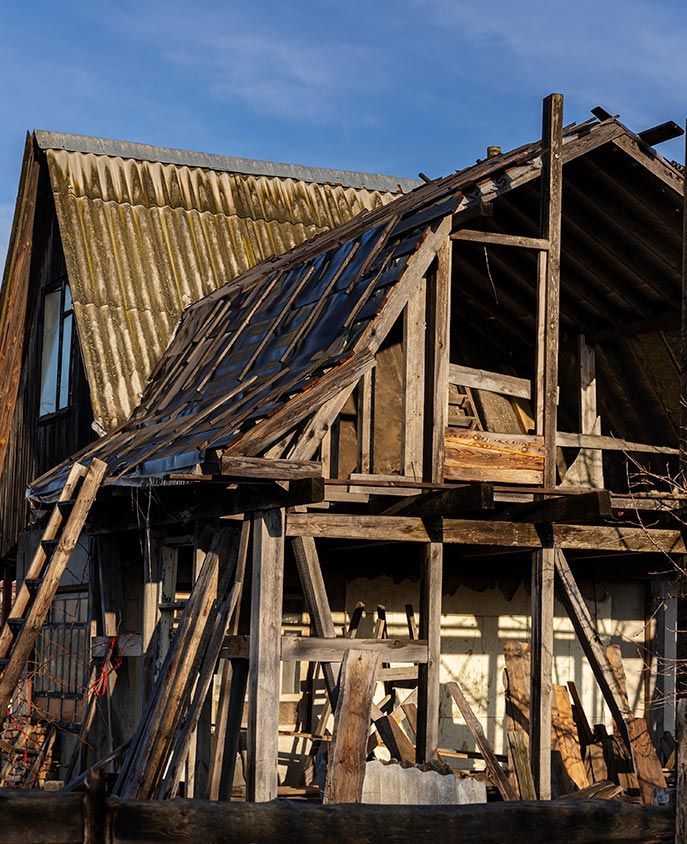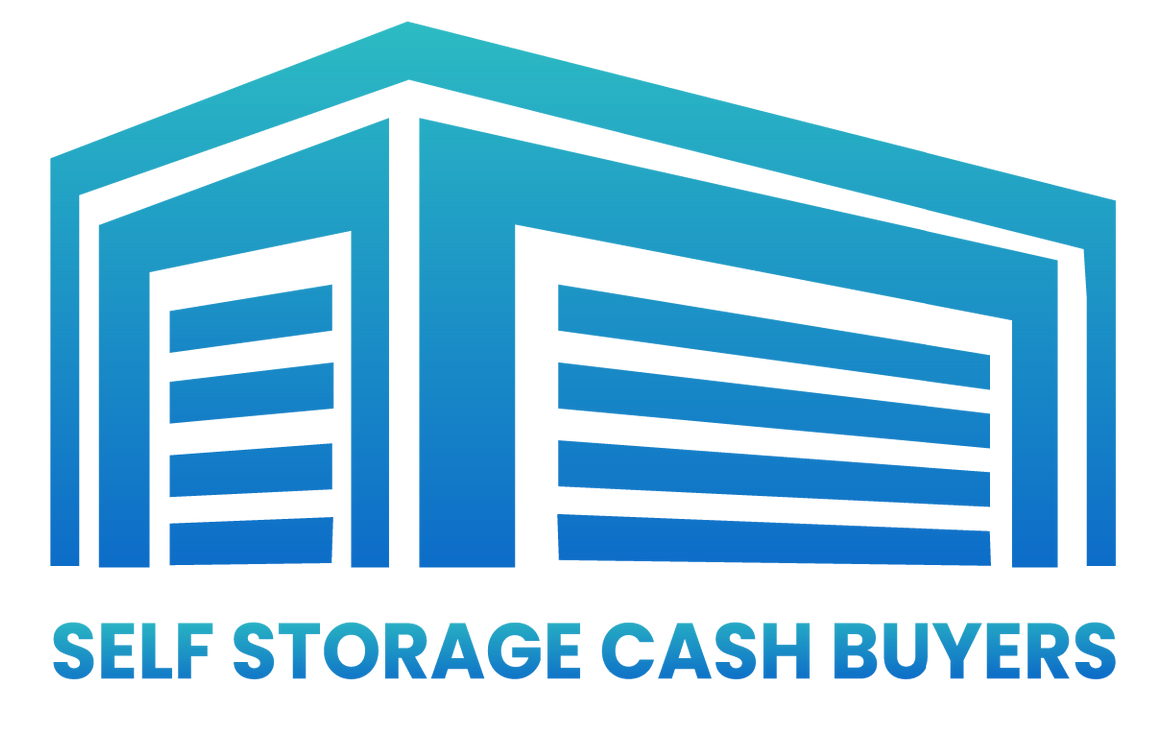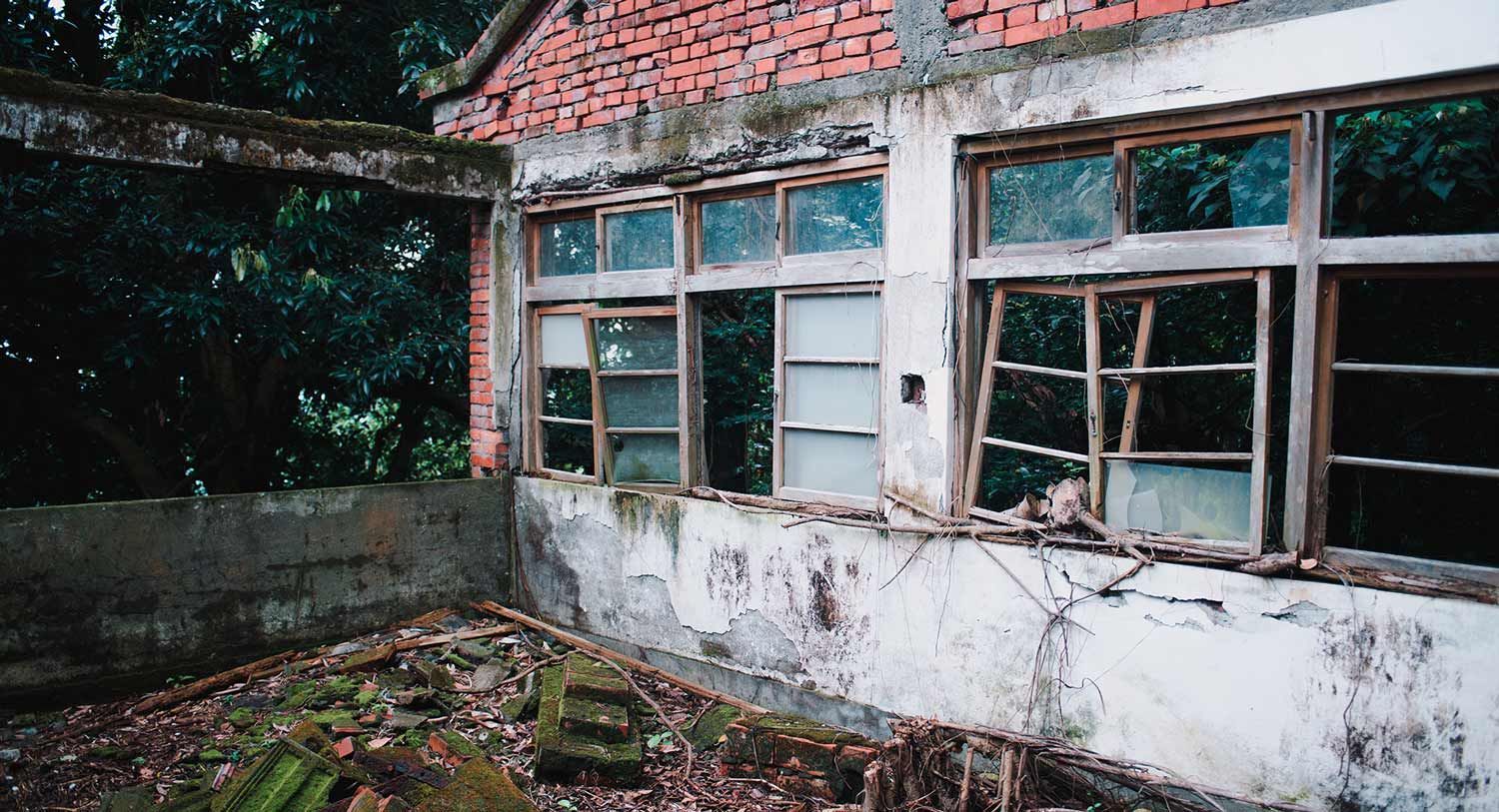Call Us Now:
6 Self Storage Security Solutions [2023]
Published on December 16, 2023
Free Offer Form
We will get back to you as soon as possible.
Please try again later.
With increasing urbanization and consumerism, the rapid expansion of the self-storage industry is no surprise.
Storage units are a convenient solution for individuals and businesses who need additional space for personal belongings, sports gear, inventory, equipment, and more.
However, amid the convenience a storage facility provides, one thing remains a concern – security. Self-storage facility security is a vital deciding factor when choosing between storage facilities.
In this article, we'll cover the critical importance of security within the self-storage industry, exploring common security measures and unveiling the best ways to fortify your storage unit.
The Importance of Self Storage Security
Having to store personal belongings or items of value in places other than your home or business can make one anxious.
With that, the significance of self-storage security solutions cannot be overstated.
Why Security Matters in Self Storage
Self-storage security systems matter in many ways. Here are some examples.
- Tenants' peace of mind.
- Protection against break-ins, theft, and vandalism.
- Protection against damage to stored belongings caused by extreme temperatures, humidity, and pests.
- Data security for businesses storing sensitive data.
- A well-maintained facility keeps its good reputation, attracting customers.
- Proper self-storage security systems help avoid legal issues.
- From an insurance underwriter's point of view, security upgrades help lower costs in your insurance plan.
Common Security Concerns in Self Storage
When operating a self-storage business, make sure to provide adequate solutions for the following concerns.
- Unauthorized Access - Customers worry about unauthorized individuals gaining access to the storage facility. Every storage facility needs to employ strict access control mechanisms. In most cases, customers are provided with unique access codes, and entry points are monitored 24/7.
- Inadequate Surveillance - A secure facility should invest in high-quality CCTV (closed-circuit television) cameras with motion sensors strategically placed throughout the premises. Storage facility security should eliminate all potential blind spots.
- Lack of Security Personnel - Even with surveillance cameras with motion sensors, it's best to also have security personnel on-site. A storage facility should have security personnel patrolling the premises at regular intervals.
- Insufficient Lighting - Every storage facility should invest in adequate lighting to eliminate shadowy corners. This ensures the entire facility is well-lit and visible, deterring potential break-ins.
Understanding Self Storage Security Measures
Self-storage security measures are put in place to provide customers with peace of mind. They always ought to believe their belongings are constantly protected.
Let's understand these security measures to help us make informed decisions when choosing or outfitting a self-storage facility.
Types of Security Measures in Self Storage Facilities
Here are the common types of security systems implemented in self-storage businesses.
Advanced Access Control System
Perhaps the most necessary access control measure to implement is a designated code or electronic key card per individual unit. Only authorized persons with the code or key can enter the premises.
However, for a more advanced access control system, employing biometric technology is beneficial. For example, fingerprint and retina scans can easily identify individuals accessing the storage facility.
Other advancements in access control include providing in-software alerts showing access histories of those given gate access or who were at the site at any given time.
Access by tenants, managers, maintenance workers, lawn care teams, and even construction crews should be monitored.
Video Surveillance Cameras
High-resolution video security cameras are another marketable security feature. They can help avoid a break-in, thwart burglars, deter crime, and monitor activity on-site.
Many renters consider security cameras a must-have before renting, so having them installed can improve occupancy rates.
Video surveillance cameras operate round the clock, monitoring the facility 24/7. If break-ins occur, security footage will be helpful when working with the police.
We recommend installing high-resolution cameras to capture clear images and videos.
Thermal imaging cameras, high-res cameras with motion sensors, and wireless IP cameras that send notification alerts to your smartphone when motion is detected are the ultimate protection against illegal activity.
Alarmed Units
Equipping individual unit alarms is another common storage facility security measure. These alarms trigger when the locks are opened without authorization or tampered with.
Some advanced access control systems also include motion sensors inside the units. In many cases, detecting the unauthorized lifting of gates or windows or through acoustic sensing technology sounds the alarm.
Some facilities also install perimeter intrusion alarms or perimeter intrusion detection (PID) solutions. These are installed to detect climb-overs, cut-throughs, and break-ins along the perimeter wall.
Security Personnel
Self-storage facility security personnel patrol the premises to ensure customers' belongings are safe. As much as on-site security can deter thieves, it can be costly to have them rove around 24/7.
Surveillance video monitoring or conducting mobile patrols within the facility are more economical ways to prevent a break-in.
Perimeter Fencing
To make it difficult for unauthorized individuals to enter the premises, storage facility security should establish a solid perimeter fence. Consider installing heavy-duty commercial fencing that is climb and cut-resistant if you are:
- Located in a high-crime area
- Your facility or surrounding establishments have been targeted by thieves in the past
- You are storing cars, boats, and other large valuable items on the premises
Lighting and Motion Sensors
Well-lit spaces throughout the facility ensure there are no dark corners where illicit activities can occur.
We recommend installing LED lights with motion sensors. These motion sensor lights may be expensive upfront but save you money on energy costs and maintenance work in the long run.
Furthermore, a self-storage facility should also install flood lights, area lights, and canopy lights to create a more secure environment.
Innovations in Self Storage Security
In this age of technology, employing advanced security automation is a worthwhile investment. Ensuring the safety of your customers' belongings at all costs also ensures customer loyalty.
Here are some innovations in self-storage operators have implemented recently.
- Some storage facilities offer mobile apps that give customers unit or gate access through their smartphones.
- Smart security systems can send real-time alerts to customers' phones. They can notify customers when the correct code is not inputted.
- Aerial surveillance is sometimes employed for an overhead look at the entire property. These are drones equipped with AI motion sensors. This adds an extra layer of protection to secure storage facilities.
- AI-powered surveillance systems can study behavior through video analytics. The system can detect unusual behavior, like loitering around the self-storage facility, and trigger an alert.
- Another use for camera systems with video analytics is to collect data and automate access control. The system can perform license plate recognition, crowd detection, and face recognition.
Best Practices for Enhancing Self Storage Security
Here are several best practices to enhance the safety of your or your customers' belongings.
- Research the self-storage facility you're considering. Look for reviews on their security practices and record of incidents.
- Before committing, visit the self-storage facility in person to assess security features, lighting, and general upkeep.
- Opt for climate-controlled units if possible. These are usually located within secure, access-controlled buildings.
- Get insurance coverage to safeguard your belongings against unforeseen events like fire, floods, or theft.
- Document and keep an inventory of your items stored, preferably with photographs. These will be useful with insurance claims in case of theft or damage.
Choosing the Right Lock for Your Storage Unit
The best storage solution for your needs will likely include secure locks for your rental unit's door or gate. However, it's still best to ask the facility manager whether or not a lock is included in your rental agreement.
If you need to get one yourself, consider these durable locks to lower the chances of potential burglary.
- Heavy-duty padlocks are made of hardened steel. Choose a closed-shackle padlock that's resistant to cutting tools like bolt cutters and saws.
- Disc locks have smaller openings that make it difficult for bolt cutters to get a stable grip. These are also made of thick metal and are round-shaped, offering enhanced security.
- Combination locks with a robust design and a durable dial are a good choice too. Just don't pick an easily guessable code.
Additional Security Measures for Your Storage Unit
For added security measures, you can implement the following practices:
- Using security seals and tamper-evident devices to easily detect potential unauthorized access.
- Install motion-activated lighting to deter intruders.
- Practice proper shelving and organization to make it harder for thieves to quickly locate valuables in your storage unit.
- Visit your storage unit periodically to ensure everything is in order.
Limitations and Restrictions in Self Storage Security

There are certain limitations and restrictions imposed on self-storage business properties for safety, legal, and ethical reasons. Let's cover them here.
Types of Items Restricted in Self Storage Units
The following items are not allowed to be stored in storage units.
- Hazardous materials like chemicals, explosives, and flammable items like gasoline, propane tanks, and fireworks.
- Perishable items like food can attract pests, cause odors, and bacterial growth.
- Illegal items like drugs, stolen items, or other illicit materials.
- Extremely valuable items like cash, jewelry, paintings, and priceless heirlooms; If these get lost or stolen, insurance claims might get complicated.
Potential Disadvantages of Self Storage Units
Self-storage as a solution has plenty of benefits, but it also has a few potential disadvantages.
- Long-term storage can accumulate significant costs. It's important to consider these potential expenses.
- Some facilities have restricted access hours. So if you need to frequently visit your unit round the clock, this can be inconvenient.
- Despite all the security measures in place, no system is entirely foolproof, especially if the facility is located in a high-crime area. Your belongings will always be vulnerable to theft.
- Concerns like protecting your items against extreme temperatures might be an issue if you store sensitive items that require precise humidity and temperature control.
- Depending on the facility, your belongings might also be at risk of destruction from
maintenance issues
like
leaks or pests.
Debunking Misconceptions about Self Storage Security
Self-storage businesses have come a long way in terms of security. However, there are still a few misconceptions that need debunking.
Let's unravel some common myths and shed light on the truth about self-storage unit security here.
Common Myths about Self Storage Security
Myth: "Self-storage properties are easy targets for thieves."
Truth: Self-storage businesses may attract criminals due to the nature of the stored items. But it's no easy task to steal from a facility with round-the-clock surveillance, secure access control, and on-site personnel. Many reputable facilities invest in advanced security systems to deter potential criminals.
Myth: "Self-storage properties are prone to fires."
Truth: Most modern storage buildings have fire prevention systems installed, like smoke detectors and sprinklers. Furthermore, facility managers ensure you abide by the rules against storing flammable materials.
Myth: "Storage units lack proper lighting."
Truth: Facility owners prioritize proper lighting. These well-lit spaces deter criminal activities and provide a safer environment for customers accessing their units, even during nighttime hours.
Myth: "Security cameras are ineffective and are rarely monitored."
Truth: On the contrary, high-resolution security cameras are very effective and efficient. In this age of technology, motion sensors and AI analysis are even embedded in these cameras to automatically detect potential criminal activity. All in all, these ensure personnel can respond promptly.
Myth: "Storage facilities don't have climate-control features."
Truth: Many self-storage businesses offer climate-controlled units to protect items from extreme temperatures, humidity, and moisture. These often cost more than regular units.
The Reality of Self Storage Security
If you are just about to visit a self-storage property, you should expect the following security measures.
- 24/7 surveillance systems cover all areas of the facility. These high-quality cameras continuously monitor and record all activities, especially suspicious activity.
- Access control systems, such as unique entry codes and biometric scans, ensure that only authorized individuals can enter the facility. In most cases, this restricts access to customers and staff only.
- On-site security personnel will be patrolling the premises consistently.
- Regular maintenance work is done to ensure that security features like lighting, cameras, and alarms are functioning optimally.
- Customers are educated about the security measures in place, like access control, and reminded of best practices, like using sturdy locks.
Frequently Asked Questions
Learn more about self-storage security here.
What Are the Best Types of Locks for Self Storage Units?
Regardless of which types of storage units you're renting, there is no loss in going for a heavy-duty metal padlock. These are some notable examples:
- Disc locks are specifically designed for storage units. These are made with hardened steel construction and a circular shape that offers superior cut resistance.
- Closed-shackle padlocks have a protected shackle that makes it difficult for bolt cutters to get a good grip.
- Cylinder locks are usually built into the unit. These locks are typically difficult to pick and provide a high level of security.
How Secure Are Self Storage Facilities?
It is safe to say reputable self-storage properties are very safe. They invest heavily in security mechanisms which often include the following.
- Security cameras are strategically placed throughout the facility for 24/7 monitoring.
- Facilities use access control systems like access codes, biometric scans, or electronic key cards so that only authorized individuals can enter.
- Many facilities have on-site security guards who patrol the premises.
- Adequate lighting ensures there are no dark corners, deterring potential intruders.
What Additional Security Measures Can I Take for My Storage Unit?
Some additional measures you can implement independently from the facility include:
- Installing motion-activated lights inside your unit to deter potential thieves and help you find items in low-light conditions.
- Use tamper-evident security seals on your unit to indicate if it has been tampered with.
- Visiting your storage unit periodically to ensure everything is in order and to deter theft or unauthorized access.
What Items Are Typically Restricted in Self Storage Units?
There are some items you should not store inside a self-storage unit.
- Hazardous materials like chemicals, explosives, and flammable items.
- Perishable items like food, plants, and other items that are at risk of pests and odors.
- Illegal items like illegal substances, stolen goods, or any other illicit materials.
What Are Some Common Misconceptions About Self Storage Security?
Some more misconceptions about the security of self-storage businesses include the following.
- Storage Units Are Easily Breached: Every facility will always have self-storage security systems in place. Bigger facilities invest in more advanced security measures. These make unauthorized access highly challenging.
- Stored Items Are Not Insured: Many facilities offer insurance options. but it's also advisable to personally insure your belongings for added protection.
- Self-Storage Properties Are Dark and Unsafe: Modern facilities prioritize proper lighting. This creates a safer environment for customers, especially those accessing their units late at night.
Conclusion
We cannot emphasize enough how important security features are for self-storage businesses. It's not just about storing customers' belongings, but it's also about ensuring their peace of mind.
If you are a business owner looking into building your own self-storage facility, do not skimp on security!
Make sure to install security cameras, proper access control, alarm systems, and adequate lighting. If you are committed to this, then your business should continue to thrive.
Free Offer Form
We will get back to you as soon as possible.
Please try again later.
Have A Storage Facility You Want To Sell?
we buy storage facilities in these states
List of Services
-
California
-
Texas
-
Florida
-
New York
-
Pennsylvania
-
Illinois
-
Ohio
-
Georgia
-
North Carolina
-
Michigan
-
New Jersey
-
Virginia
-
Washington
-
Arizona
-
Tennessee
-
Massachusetts
-
Indiana
-
Missouri
-
Maryland
-
Wisconsin
-
Colorado
-
Minnesota
-
South Carolina
-
Alabama
-
Kentucky
-
Louisiana
-
Oregon
-
Oklahoma
-
Connecticut
-
Utah
-
Nevada
-
Iowa
-
Arkansas
-
Kansas
-
Mississippi
-
New Mexico
-
Idaho
-
Nebraska
-
West Virginia
-
Hawaii
-
New Hampshire
-
Maine
-
Montana
-
Rhode Island
-
Delaware
-
South Dakota
-
North Dakota
-
Alaska
-
Vermont
-
Wyoming


